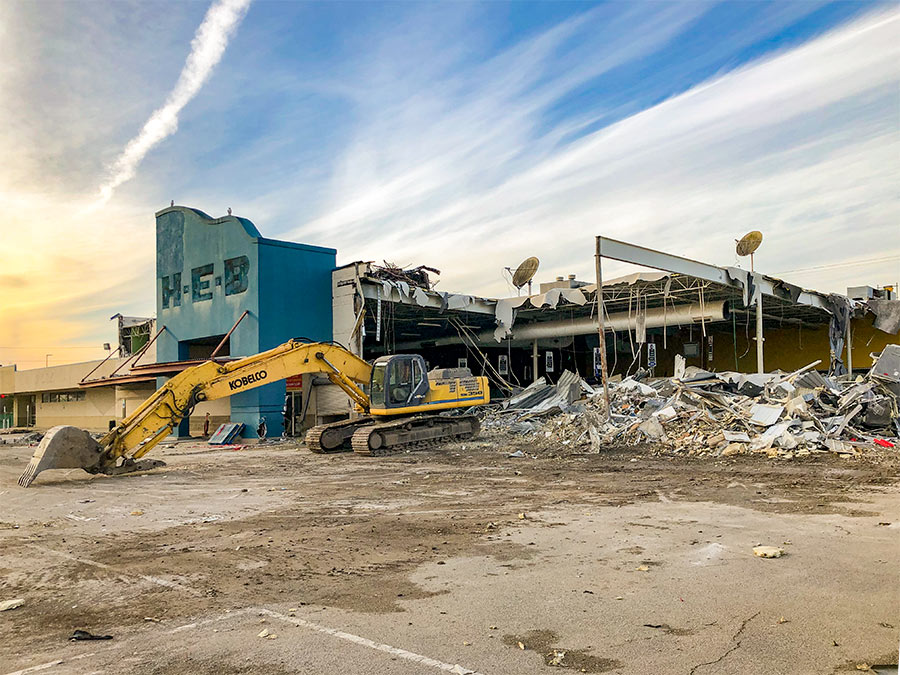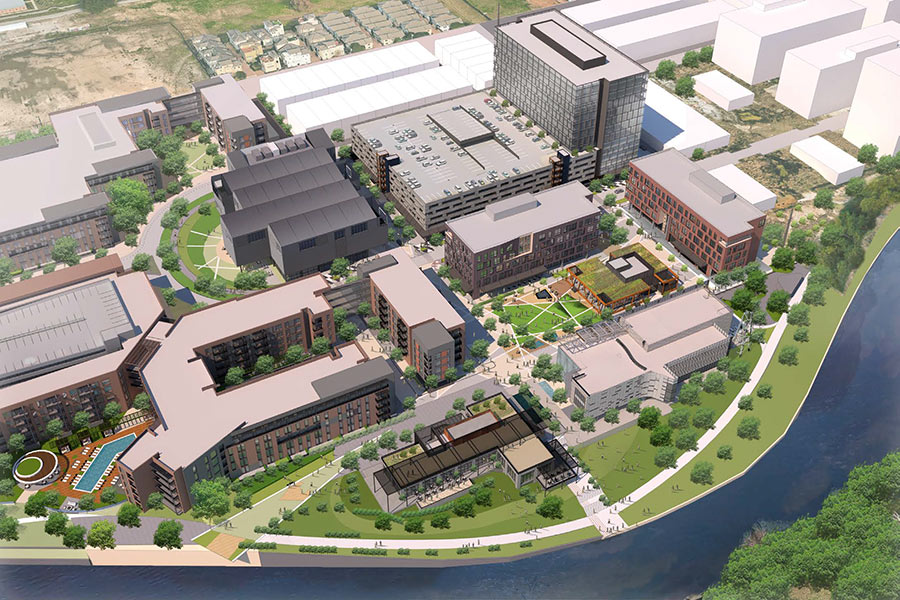HOW AMAZON AND WHOLE FOODS MARKET COULD CREATE THE NEW BUILDING BLOCKS OF URBAN COMMERCE, AND WHAT SOME OF THEM MIGHT LOOK LIKE  Will Amazon transform Whole Foods Market into a grocery services building block for farmers, restaurants, and specialty grocers — on the model of the way Amazon Web Services now serves software developers? Joshua Rothman provides a brief overview of current thinking about Amazon’s possible plans for the grocery chain — and how the result might transform the landscapes of cities: “It’s increasingly easy to imagine,” he writes, “that a few decades from now, we’ll tell our kids about how we used to ‘go to the store’; they’ll look at us and say, ‘What?’ Earlier this month, Amazon filed a patent application describing large, multi-story drone towers in urban centers. Probably, in the future, such buildings will seem unremarkable. The hive-like towers will have loading docks and warehouses on the lower floors and bays for drones higher up; the drones may be repaired and supplied by robots. ‘There is a growing need and desire to locate fulfillment centers within cities, such as in downtown districts,‘ the patent application says.” [The New Yorker] Image from Amazon’s patent application for drone-delivery warehouse tower: U.S. Patent and Trademark Office, via SiliconBeat
Will Amazon transform Whole Foods Market into a grocery services building block for farmers, restaurants, and specialty grocers — on the model of the way Amazon Web Services now serves software developers? Joshua Rothman provides a brief overview of current thinking about Amazon’s possible plans for the grocery chain — and how the result might transform the landscapes of cities: “It’s increasingly easy to imagine,” he writes, “that a few decades from now, we’ll tell our kids about how we used to ‘go to the store’; they’ll look at us and say, ‘What?’ Earlier this month, Amazon filed a patent application describing large, multi-story drone towers in urban centers. Probably, in the future, such buildings will seem unremarkable. The hive-like towers will have loading docks and warehouses on the lower floors and bays for drones higher up; the drones may be repaired and supplied by robots. ‘There is a growing need and desire to locate fulfillment centers within cities, such as in downtown districts,‘ the patent application says.” [The New Yorker] Image from Amazon’s patent application for drone-delivery warehouse tower: U.S. Patent and Trademark Office, via SiliconBeat





Hey! We could convert the old downtown Days Inn to one of these Amazon Hives! Giant garage on the lower floors, and smaller compartments above it would be perfect!
The Astrodome would make a great drone hive. All of that open space around it.
Skynet is real y’all
Astrodome would be a unique opportunity for a drone hive. That or the old KBR lot.
I guess drone-a-mania will continue until one brings down an airliner with 200 on board. If autonomous flight in densely populated areas was so safe, don’t you think we would have seen a cut-rate airline with no pilots on board by now?
@Al,
That reminds me of the joke about the efficient markets hypothesis: Two economists are out for a walk. One notices a $20 bill on the sidewalk and points it out to the other, who then replies, “Impossible. If there were a $20 bill on the street, someone would have picked it up.”
The more likely hazard from drones delivering packages would be those packages dropping prematurely from the drones and landing on cars, pedestrians, random places, etc. I am sure that the commercial drone airspace use will be pretty restricted to stay out of the way of normal commercial and private air traffic routes and altitudes. Private (and solo commercial drone operations) will be a much bigger issues for planes than a large company’s (like Amazon’s) fleet.